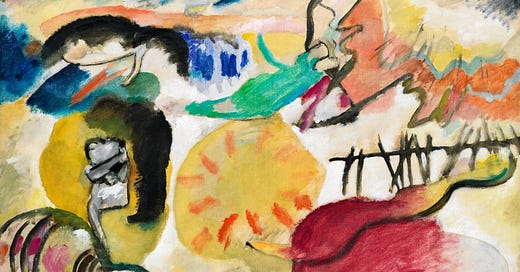November is my birth month, and I turn 30 next week! (Yes, I’m a Sagittarius.)
Not a lot of people know this, but I actually share my birth week with a pioneer in the indigenization movement, Virgilio G. Enriquez (1942-1994). I was also born on the year he died. What a great honor it was when I found this out, because Doc E was a prolific writer and, based on the stories of those who knew him, a charismatic teacher. Doc E was born on the 24th of November; I was born on the 27th.
Has Anything Changed?
It can sometimes be disheartening to see how concerns faced by Filipinos half a century ago have persisted, and in some cases, worsened. This goes for both socioeconomic and political issues as well as intellectual discourse. Even today, many of the arguments and criticisms I have to face about my work are also things Doc E had already answered decades ago—which tells us that either his work is timeless, or the field of indigenous psychology has regrettably stagnated.
I do have a suspicion that, as a culture, we don’t really change very much. This is also the argument of many great scholars, whose work rests on the idea that indigenous psychology can be found in language, myth, and customs.1 In other words, if you actually pay attention, our fundamental pagkatao (personhood) still follows the pattern of our ancestors, all the way back. This is good because it implies that, culturally speaking, the important things aren’t actually lost, only briefly forgotten—but it’s also frustrating because we can’t expect new things from doing the same things. As Albert Einstein famously said, “Insanity is doing the same thing over and over again and expecting different results.” (Actually, this quote is from feminist and civil rights activist Rita Mae Brown, from her 1983 book, Sudden Death.)
If, then, we want to transform, what should we do?
Culture and Personality
Culture, on the micro scale, is individual personality. We embody our culture—that is, our social and physical environments. The process of historical trauma and cultural healing follows the same process as the healing of personal trauma. Many early social scientists have already pointed out that the development of culture is the psychosocial development of humanity. My only issue with this idea is that it tends to foster ethnocentricism, in that some cultures are perceived as not as “mature” as others (and are therefore more “primitive”). But that’s because we see history as linear, and it assumes that whichever culture is dominant today is its “most civilized” (i.e. “most matured”) form.
How I see it is that individuals are the bubbles that happen on the surface of boiling water, and culture is the hot water. The heat is the lived context of environment, technological history, and intercultural interactions. I know this is a static metaphor, but my spirit has to play the limited game of language. I trust that you understand what I mean.
This 2024, I complete my Saturn return, I emerge into adulthood. For the first time in my life, I actually “feel like my age.” So far, I’ve been living my life under the kind and playful watch of a laughing God. On the path to who I am today, I’ve been messy; I’ve hurt others and I’ve been hurt by them; I’ve lost so many things, let go of so many dreams. My 20s has been an exciting time. Frankly I don’t remember much before this decade except through vague and dusty nostalgia; I always say that I only came into consciousness (nagka-muwang, or should I say, nagkatawang-tao) when I was around 23. Before that, I believe I was only operating on reflex and imagination. In any case, I am the amalgamation of my joys, sorrows, choices, environments, serendipities, and friends. I am my family and my culture. I am because others are; I am because I have kapwa.


Transformation
Decolonization is a process of returning to one’s authenticity—and this occurs on both a personal and societal level. I return to what I’ve always enjoyed, from childhood: magic and mythology. This doesn’t mean I’m regressing back to childishness. It means that I am the participation of all my selves across time. There is no “core” of me, no “atom” of “Carl-ness.” Anyone who thinks they know the kind of person I am has only witnessed a part of me. I am so much more than my online persona, so much more than the things I love writing about, so much more than the multitude of imagined Carl-personalities existing in all the people who I have come in contact with. This is also what it means to live in a shared human field, to have your identity be part of kapwa, to be known as a fundamental aspect of nature only for existing. The Eastern sages knew it, the Gestalt psychologists understood it, the religious mystics tapped into it, our animist ancestors were in tune with it. We are It—Tat Tvam Asi—the divine ground of being. We’ve just gotten so engrossed in the Game, and most especially the character we’ve created to play it. But if the self can be lost (nawala sa sarili) even in mundane scenarios, then the self was never truly fixed.
I don’t know who or where I will be next year, or five years from now, or a decade from now, or in fifty years. But I have the assurance of having always been myself. As I grow older, I accumulate the marks of memory (tanda), and become filled with it (matanda, with the prefix “ma-” implying “a lot of”). The process of aging and the process of remembering use the same word: pagtanda.
I become who I have always been.
For my birthday next week, I’d truly love to hear from you, especially how my work has influenced your work or ways of thinking and being. Since I do most of my research, writing, and design mostly in isolation, it would be good to be reminded, once in a while, that I share this space with so many spirits. If you like, you can reply to this post through the comments section, or, if you received this via email, then you can just reply to it directly. Thank you, ingat lagi!
Examples of this include: Leonardo Mercado’s metalinguistic analysis of Philippine languages in his attempt to indigenize the field of academic philosophy; the application of linguistic relativity theory (also “Sapir-Whorf Hypothesis”) by Sikolohiyang Pilipino scholars in identifying relevant concepts; Zeus Salazar’s “Four Filiations,” one of which insists on the continued relevance of pre-Hispanic babaylan/katalonan frameworks.







Happy birthday! I'm a diasporic Fil-Am and I appreciate your writing and research as I work to deepen and remember my connection to the motherland. Thank you for your work and your voice.
Hello and happy birthday! Sharing this boardgame I was making during my masters program in Spain(my field is in art, design and tech). Called it Pulô: A Kapwa-inspired Board Game Intervention. Malaking motivation at inspiration ang nakuha ko mula sa posts at essays mo, salamat! More power 🌻✊
https://minnie-at-iaac.github.io/#/term2/00-Design-Studio/Design-Studio